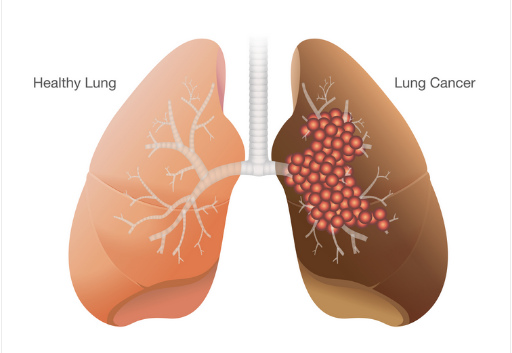Lungs are a pair of spongy, air-filled organs specially designed to inhale oxygen and exhale carbon dioxide to keep the body alive and healthy. Any infection or disease in the lungs can prevent it from working properly.
Anyone can get Lung cancer. Lung cancer is developed due to the mutation of cells in the lungs due to various factors such as smoking, high levels of pollution, radiation, and asbestos exposure.
Lung cancer can develop in two ways. One, cancer that starts in the lung, known as primary lung cancer. Second is cancer that develops elsewhere in the body and spread to the lungs. This is called secondary or metastatic lung cancer.
What Is Secondary Lung Cancer
Cancer is the rapid and uncontrolled growth or mutation of the cells. These cells can divide and travel through the bloodstream or lymphatic system of the body. If these cells build up to form another tumor somewhere else in your body, it causes secondary cancer or metastases. Similarly, cancer that spreads to your lung from somewhere else in your body is called secondary lung cancer. Cancers that are more likely to spread to the lungs are:
- Large bowel (colon and rectum)
- Breast
- Bladder
- Testicle
- Stomach
- Gullet (esophagus)
- Kidney (renal)
- Malignant melanoma(a type of skin cancer)
- Sarcomas (a type of cancer of the cells of the soft tissue of the body)
The symptoms of a secondary lung cancer
- A cough that doesn't clear up
- Breathlessness coughing up blood-stained phlegm
- Persistent pain or discomfort in the chest.
- A build-up of fluid in the pleura
Many of these symptoms are similar to those of primary lung cancer. Conditions other than cancer, such as a chest infection, can also show these symptoms.
Sometimes, secondaries or metastases are diagnosed even before primary cancer has been diagnosed. It will be challenging to find primary cancer. Different tests are then performed to find the exact location where cancer started. This type of cancer is known as 'unknown primary.'
Treatments
Most often, secondary lung cancer is difficult to cure. However, treatments are given to control cancer and to improve your quality of life. Treatments include:
- Chemotherapy: Uses drugs and shots to shrink or slow down your cancer.
- Radiotherapy: Uses high-energy rays directly at the tumor to kill or shrink the cancer cells.
- Biological therapy: Uses your body's immune system to treat cancer.
Each treatment option has its possible side effects, which can be managed fairly well. However, it is essential to understand all of the possibilities when you examine your treatment options. Take your concerns to expert doctors and discuss various options to manage your disease.
Reviewed By : Dr S G Balamurugan
Visit us @ cancer-treatment-madurai.com
Book an appointment : cancer-treatment-madurai.com/book-appointment.html


